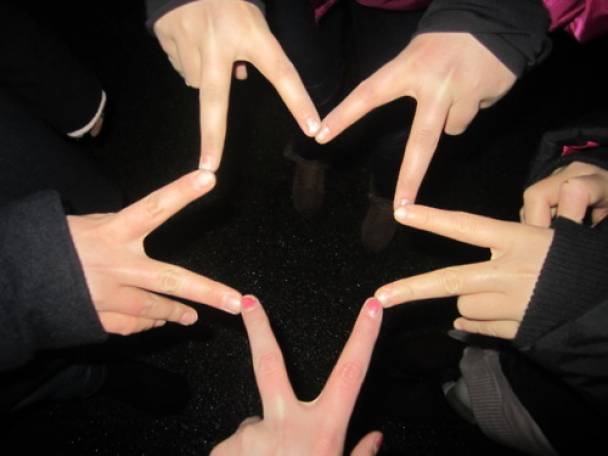Six Degrees of Separation? Try Five.
Here’s a wee information nugget for you that’s fresh for the new year.
Here's a wee information nugget for you that's fresh for the new year. You know the old six degrees of separation concept? That the entire world is connected via no more than six intermediate connections? Everyone knows everyone, it's a small world after all, yada yada ya? If you're anything like me and already find this a little hard to fathom, then prepare yourself, because thanks to Zuckerberg's mates in the Facebook data team, rolling into 2012 this number appears to have shrunk - to 4.74. The mind boggles.
Admittedly, this is only applicable to the 721 million people using Facebook. But that's still a good chunk of the world. As the site has grown over the years, the global network of Facebook users has inevitably become more connected. The average distance between two random people on Facebook in 2008 was 5.28 connections. Now it is 4.74.

It's a bit like when they talk about an average household with 2.5 children. I get a bit lost on how you can decimal point humans, however, the fact that this particular statistic is getting smaller kind of does make you feel like the world's shrinking a bit and your chances of ever meeting someone completely new are pretty slim.
The six degrees concept was first trialled in the 1960s by social psychologist Stanley Milgram. The test was run by Milgram getting 296 random people to try and get a message to a chosen individual in Boston. The volunteers were told to send the message to someone they knew who they thought would be more likely to know the target person than themselves, and so on. How he sold this idea to 296 willing volunteers, I'm not so sure, but in the end it took an average of 5.2 people to get the message to the target person in Boston.

Facebook's data came from the team looking at all 721 million active Facebook users with 69 billion friendships among them. They noted that their research, which was conducted via complex algorithms, is not fully in sync with Milgram's research. In Facebook's study each time a connection between two random people was measured, it was always the shortest possible route. The people in Milgram's study were guessing which was the shortest route, so it is likely that some of the time they were wrong.
I mean, you have to wonder how you can ever truly prove whether the whole world is actually connected via six degrees of separtion, or five, or 4.74 or whatever. But there's certainly something to be said for how Facebook's mutual friend listing makes you feel like the world, or at least Auckland, is not only a small place after all, but rather, mind blowingly minute.






